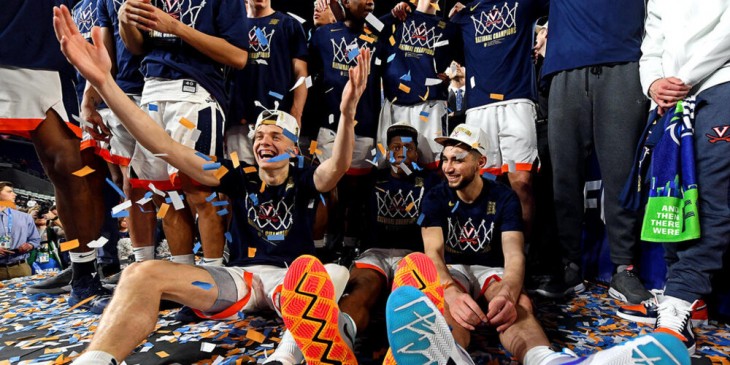Student sports
22.11.2021
Challenges faced by student athletes and how they can tackle them

-
Members of the discussion:
-
Last reply:
It’s no secret that in today’s competitive landscape, student-athletes struggle to keep themselves in a steady path – a path that will eventually lead them to the dream-come-true of a student-athlete: the dream of going professional. Undoubtedly, some may say that student-athletes are privileged to be in their position in the first place, but this does not make their life any easier or their route any less complicated. As a student athlete, you’re required to find balance in your life, at a much younger age compared to regular college students and you’re expected to mature or be overwhelmed by what’s coming your way. In this article, we’ll address some of the most prevalent challenges that student-athletes regularly face, and we’ll try to give you some tips on how to ease those challenges and smoothen your otherwise unsteady years of being a student-athlete.
1st Challenge:
Creating a balance between your athletic and academic responsibilities
Being a student-athlete makes it hard for you to set your priorities; after all, are you a student or are you an athlete? The answer is simple, you’re both and you should never forget that. Keep reminding yourself that you’re not in college just to be an athlete but to also get proper education and graduate with a diploma. Many student-athletes fall into the trap of forgetting the ‘student’ part and neglect their studying, causing them to perform poorly and not fulfilling the minimum requirements. Of course, it’s easier said than done when both your coach and your professors expect the best from you so how can you please them all? Pre-allocate your time between your two priorities and reach an understanding with your mentors that you cannot deviate from your time allocation. Simply put, at the beginning of each week, say that you will dedicate at least certain number of hours towards your classes: enough hours that will help you progress towards obtaining your degree without having to fall back on your practices. Talk about your allocation to both your coach and your professors and not only they will not object to it, but they will try to assist you on making the most accurate allocation possible, based on their expectations from you.
2nd Challenge:
Creating a balance between social activities and your student-athlete responsibilities
Remember that saying about college years being your best years? Your excessive responsibilities from being a student-athlete should not mean that you have to constantly suffer and abandon any form of personal life. Of course, you’re expected to make some sacrifices when it comes to social activities given that performing both as a student and as an athlete are your top priorities. By no means though should you abandon your social life as this could endanger your emotional stability. It’s important that you hang out with friends and do normal college stuff occasionally, to prevent yourself from turning into a robot that only performs without receiving any pleasure. Make sure that between studying and practicing, you devote at least a couple of hours every week to hang out with your friends, go out and have fun or even sit in and enjoy time with the people that you like being around. This will not only keep you emotionally stable but will also give you energy to perform even better when it comes to your priorities: practicing and studying.
3rd Challenge:
Keeping yourself emotionally stable while having to compete both on and off the field
Student-athletes need to understand that it’s fine for them to feel lost and a bit unstable when dealing with multiple fronts: studying, practicing and having a social life. Nevertheless, it’s easy for student-athletes to fall into emotional instability due to stress coming from multiple directions which is what we want to prevent, as it might lead to a spiral of negative effects. The key to achieving stability is establishing a mentality towards pressure which enables you to use pressure constructively. In simple words, when feeling pressured, you need to realize that it’s that pressure that will make you go the extra mile when it comes to achieving your life goals – after all, no athlete has every progressed at the comfort of their couch; every big athlete has felt the same pressure and has made it so why not you? Use the mental pressure to motivate yourself and always understand that you’re not the only person that has been through that, many others have gone through the same and have gotten out stronger, better and highly successful.
Having outlined the above challenges, it’s important to note that these do not reflect the full spectrum of challenges faced by student-athletes but intend to give a broader understanding of the hardships faced by student-athletes and some tips that might ease them. Overall, the key to being a successful student-athlete and tackling every challenge that comes to your way is finding the right balance. ‘Playing’ on multiple fronts is hard, but when you find balance you can manage anything that comes your way and you learn to distinguish what’s important and what’s not. Finally, no student athlete has ever accomplished anything without setting their priorities and realizing what their position is. As the famous NFL running back Earl Campbell said “I talk to student-athletes. I try to get them to remember that they are not just athletes, but student athletes. You need to get an education, keep your hands clean and try to represent the university.”
Discussion
More on the topic
More on the topic
